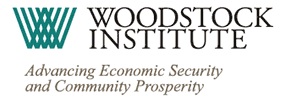Consumer Advocacy Groups Condemn Federal Court’s Decision Regarding CFPB
CHICAGO – (RealEstateRama) — The Washington D.C. Circuit Court of Appeals issued a ruling against the Consumer Financial Protection Bureau (CFPB) in PPH Corporation v. CFPB, a case dealing with the CFPB’s ability to order New Jersey mortgage-lending company PPH to pay a $109 million enforcement penalty after the corporation was found offering illegal kickbacks to mortgage insurance partners.

The October 11 ruling, which finds that the CFPB’s current organizational structure is unconstitutional, is a serious disappointment given the importance of the CFPB in the protection of consumers from abusive and predatory practices by the financial industry.
The court’s decision is filled with openly incendiary rhetoric inveighing against the agency, and it is ripe as well with concessions to CFPB’s detractors among the financial industry. This decision comes on the heels of the CFPB’s actions against Wells Fargo, the recent release of national rules regarding payday lending, and the finalization of rules regarding prepaid debit cards. If we have learned anything from 2008’s mortgage crisis and the resultant financial meltdown, it is that effective regulatory checks are a necessary part of a fair and sustainable economy.
This decision poses a threat to the CFPB at a time when we can least afford it. In today’s economy, predatory practices abound and are even routine. Misinformation from industry players and tactics by conservative policymakers seriously threaten regulators’ ability to do their job—a job which includes the constitutionally sanctioned oversight and regulatory practices that fall well within CFPB’s responsibilities.
We, the undersigned, express our strong disappointment in the court’s ruling and would like to offer our unequivocal support of the CFPB and Director Richard Cordray.
Consumer advocacy groups had this to say following the ruling:
“Since its inception, the CFPB has been highly effective in cracking down on bad actors in the financial sector. This ruling is a huge disappointment both for our organization and for our peers in the financial and consumer advocacy community. The CFPB is a cornerstone of the landmark Dodd-Frank Act, and any threats to the Bureau’s independence are a wholesale threat to consumer protection. A setback for the CFPB is a setback for consumers.” –Dory Rand, Woodstock Institute
“Since its inception to its recent action against Wells Fargo, the CFPB has demonstrated time and time again why it is needed. The CFPB’s research, education, rule-making, and enforcement are important strategies to protect consumers from predatory financial products and services. MCRC joins our colleagues in expressing our profound disappointment in this ruling. Any efforts to weaken the CFPB threaten not only the Bureau but the millions of Americans who benefit from its work.” -Marceline White, Executive Director, Maryland Consumer Rights Coalition
“In its short five years in existence, the CFPB has earned a reputation of standing up for consumers, for increasing transparency, and for creating accountability for financial practices and products that harm consumers. The CFPB’s work not only protects consumers- but it’s also safeguarding the U.S. economy from another Wall Street-created recession. We’re disappointed in the D.C. Circuit Court of Appeal’s decision and remain hopeful that it will be overturned.”—Paulina Gonzalez, California Reinvestment Coalition
“The Court’s opinion ignores the great service that the CFPB has delivered to American consumers, as most recently demonstrated by the Bureau’s actions against Wells Fargo.” – Adam Rust, Director of Research, Reinvestment Partners
Contact:
Dory Rand
(312) 368-0310
About Woodstock
Woodstock Institute is a leading nonprofit research and policy organization in the areas of equitable lending, wealth creation, and safe and affordable financial products and services. Woodstock Institute works locally and nationally to create a financial system in which lower-wealth persons and communities of color can safely borrow, save, and build wealth so that they can achieve economic security and community prosperity.












